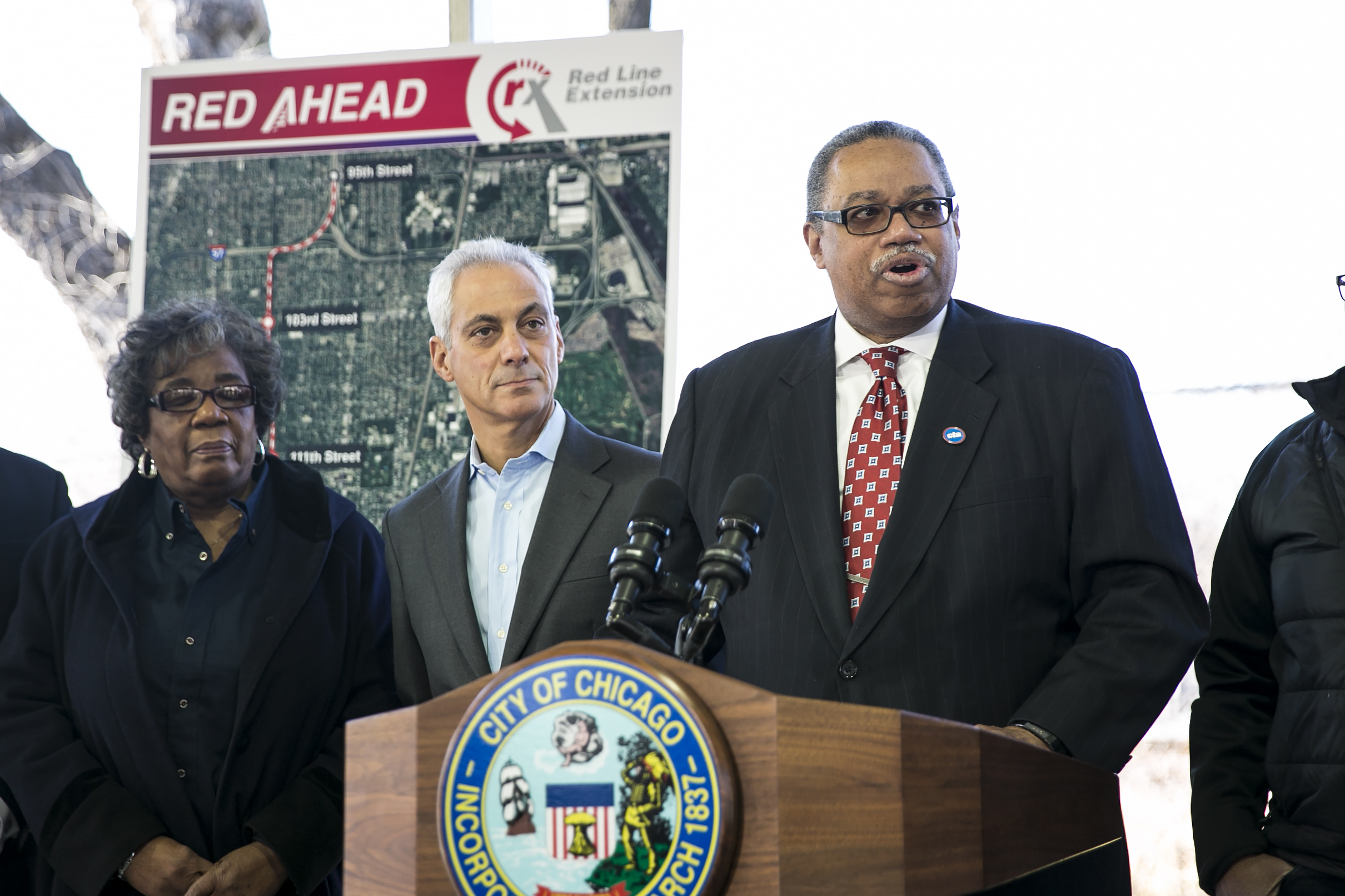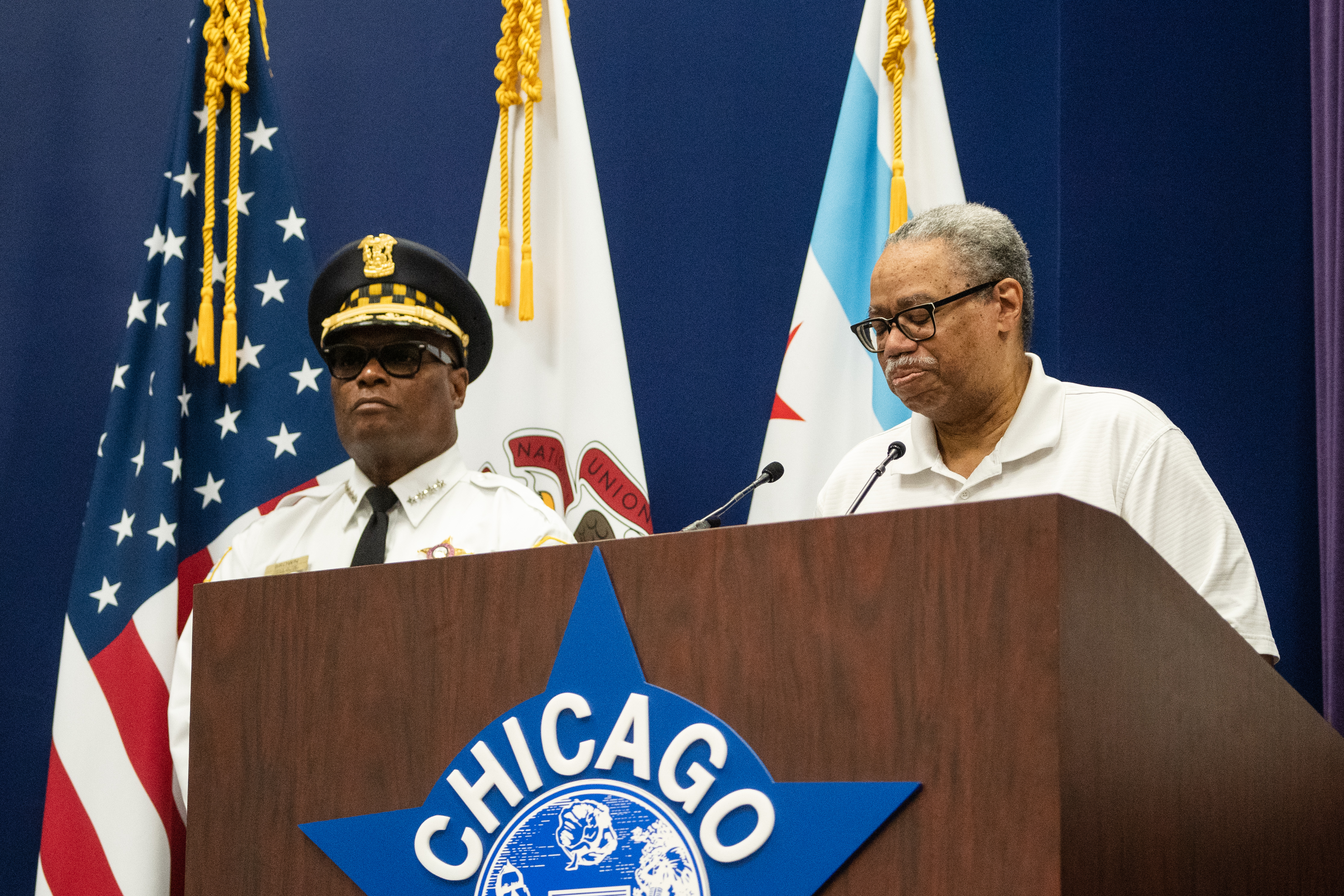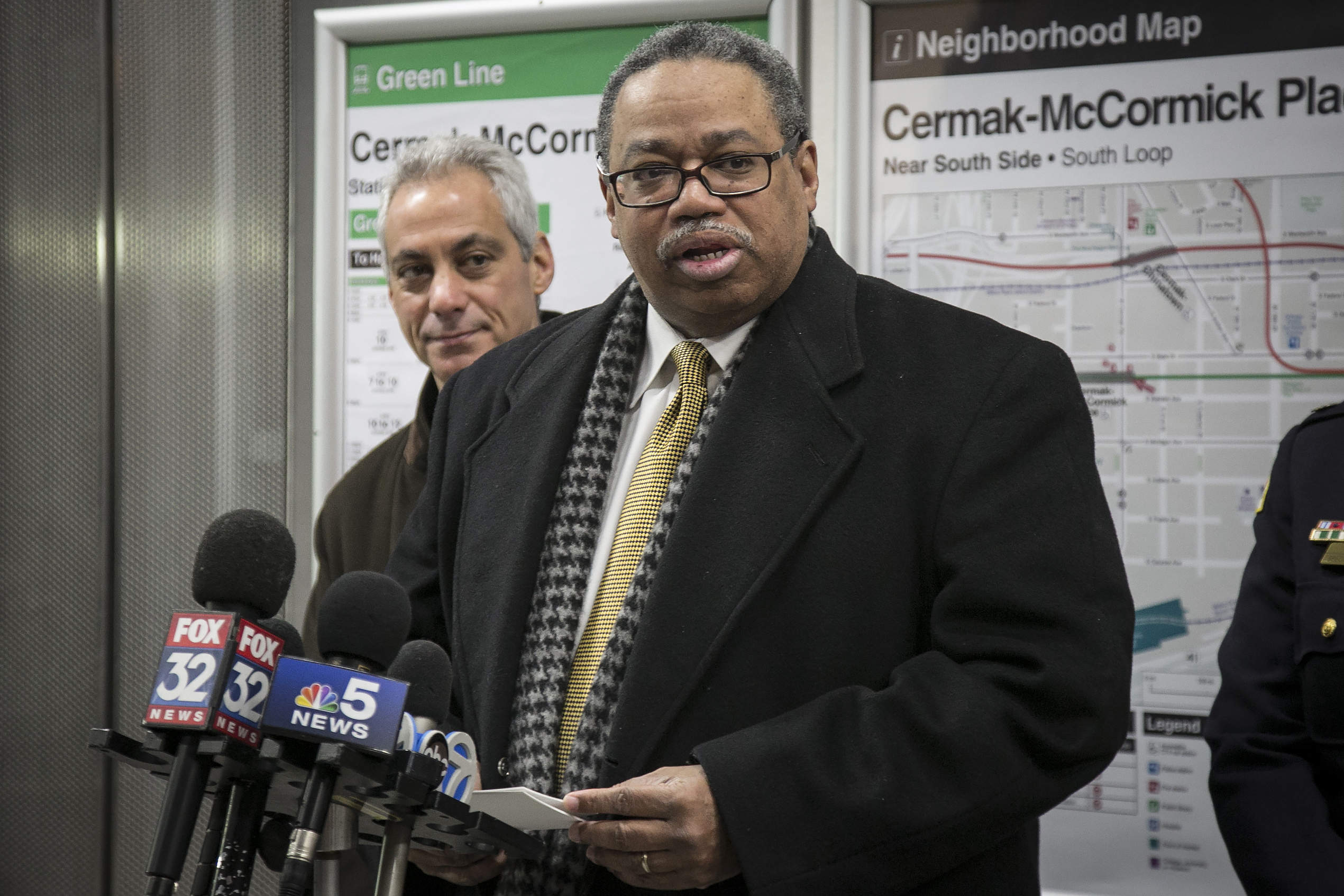On May 5, 2015, then-Mayor Rahm Emanuel used the CTA’s 74th Street garage as the backdrop to announce a change in CTA leadership.
Dorval Carter Jr., a 16-year veteran of the CTA-turned-federal bureaucrat, was coming home to lead Chicago’s mass transit agency.
“I now have an ally who can work his Rolodex like mine and we can actually now have a tag team to go get that money,” Emanuel, a former White House chief of staff, said of Carter, a mass transit lifer with a law degree who knew how to shake the federal money tree.
Nine years later, Carter finds himself in the eye of a political storm — despite delivering on that promise.
Nearly half the City Council wants the embattled CTA president to resign his $376,000-a-year job or be fired by Mayor Brandon Johnson. They’re joining Gov. J.B. Pritzker, who appoints three of the CTA’s seven board members, in demanding a leadership change.
The question in most political circles is not whether Carter can survive much longer. It’s why Johnson has stuck with Carter for at least a year and what the mayor risks by digging in his heels.
“The money for the Red Line is probably one of the leading factors. … Carter has connections and influence. He’s somebody who has Washington ties. He can make that kind of introduction easier for Brandon,” said veteran political consultant Delmarie Cobb.
“But when your own allies are saying it’s time for a change, you need to listen to the people who were there with you from the beginning. ... Brandon needs to move on. He needs to make this a priority. When you have something as vital as the CTA and you’re looking at other large cities that are doing far better bouncing back from COVID than Chicago, that’s crazy.”

Another mass transit expert, who asked to remain anonymous, offered a broader explanation for Carter surviving this long.
“The Red Line [extension] has been promised for years and Dorval delivered it. I’m sure the mayor sympathizes with Dorval as a fellow Black executive who’s getting beat on every now and then by the media. And also, who’s the alternative? Who can actually operate the system?” the expert said.
“The mayor is a West Sider. But, the Red Line is a big deal, as is the Red Line/Purple Line modernization.”
Ald. Andre Vasquez (40th), who is leading the charge for a CTA leadership change, acknowledged Carter has done some things well. But he said that doesn’t excuse glaring inadequacies on service delivery — or having to be dragged kicking and screaming into quarterly appearances before the City Council.
“You can be really good at these larger projects and getting the funding — and not have the particular skill set for management, operations and the customer service part of this role,” Vasquez said.
“When he becomes challenged about this by other people, his baseline is, `I know this stuff better than you do.’ ... It’s like he’s offended that people are questioning his leadership.”

Audrey Wennink, senior director at the Metropolitan Planning Council, acknowledged “a lot of frustration” among CTA riders.
“We’re not delivering the service that will attract riders back to transit. We need to deliver high-frequency service that people can depend on and that has not been happening,” Wennink said.
“People are impatient. People move to this region because they want to live in a region that has great transit service and we are stalling behind.”
Johnson campaigned on a promise to overhaul the CTA and provide free rides to elderly riders, people with disabilities and Chicago Public Schools students, plus discounted fares for low-income residents. In his inaugural address, he denounced the CTA as “unreliable and unsafe.”
Since then, Johnson has changed his tune. He has touted the strides made to boost CTA hiring, restore service and reduce mass transit crime.

When state Rep. Kam Buckner (D-Chicago), ran for mayor last year, he made CTA reform an even bigger issue than Johnson did.
Buckner is one of the prime movers behind a proposal to consolidate the four Chicago-area mass transit agencies — the RTA, CTA, Metra and Pace — into one super-agency with beefed-up powers.
“There either needs to be a leadership change or a change in leadership philosophy at CTA,” Buckner said Tuesday.
“The CTA doesn’t have a whole lot more time to get things right. … When you hear the state legislature say what you’re doing isn’t working and you hear the CTA respond by saying, ‘Just give us more money,’ that’s problematic. When you hear the City Council say, ‘What you’re doing is not working’ and you hear CTA respond by saying, ‘It is working. You don’t know what you’re talking about,’ there’s no accountability. The folks who are suffering are the people of Chicago.”
With federal stimulus funds drying up and a combined $730 million fiscal cliff looming, Buckner said: “There will be no new revenue without reform.”
RTA Board Chairman Kirk Dillard has no idea how long Carter will last or if he will stick around long enough to break ground on the 5.6-mile Red Line extension after shepherding it for so long. But Dillard knows why he might.
“The mayor has so many issues on his platter.,” Dillard said. “It’s not a surprise that he’s kept the CTA president for a while.”




